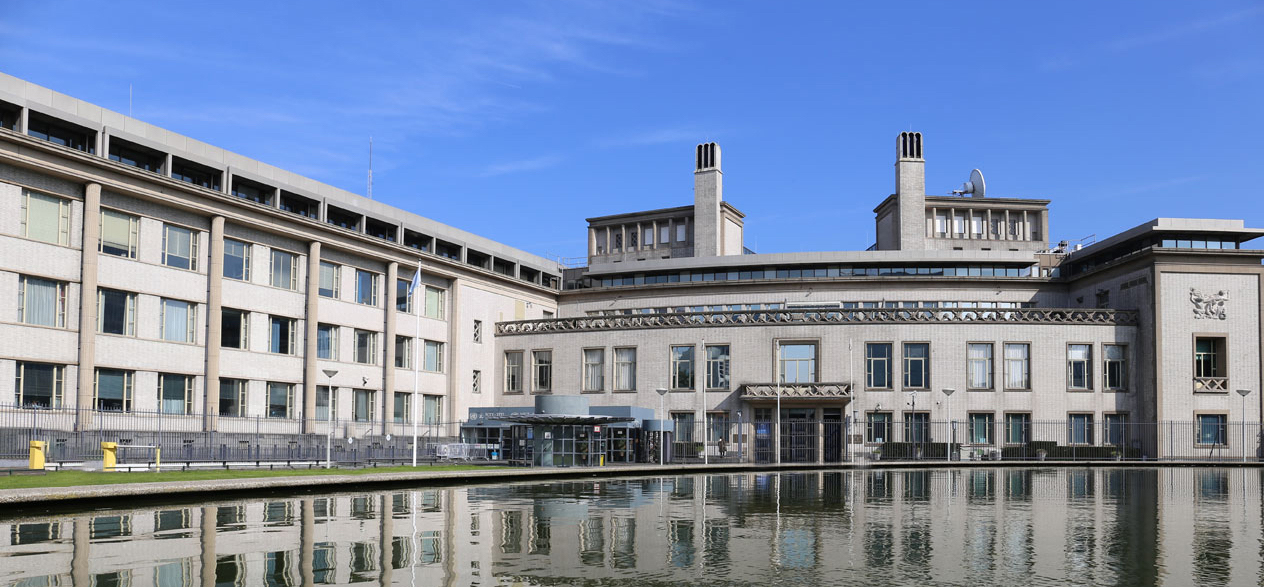
The International Criminal Tribunal for the Former Yugoslavia (ICTY) Digital Archives provide access to a range of documents and other records associated with the work of the ICTY. The result of an ongoing collaboration between Dodd Impact Programs, the UConn Libraries, the Connecticut Digital Archive, and individual scholars, witnesses, and others involved in the Tribunal, the ICTY Digital Archives seek to make the work of the tribunal accessible to researchers, educators, students, and others. The project continues to work to identify, evaluate, process, and make available additional materials with the goal of advancing a better understanding of the work of the ICTY and the history of the conflict in the former Yugoslavia.
ICTY Archives’ Path to The Dodd Center for Human Rights
The following publications outline the call for open ICTY archival access, beginning in 2012.
View the Publications
Truths, Memories and Historians in the Archives of the International Criminal Tribunal for the Former Yugoslavia
Robert Donia
pp. 223–228 in H.G. van der Wilt, J. Vervliet, G.K. Sluiter. J.Th.M. Houwink ten Cate (eds), The Genocide Convention: The Legacy of 60 Years (Martinus Nijhoff Publishers, Leiden 2012)
OTP-ICTY Digital Archives Project Proposal
Complete documentation on file with Predrag Dojčinović
2014-2016
Safeguarding the Hague Tribunal’s Unique War Archives, Balkan Transitional Justice
Richard A. Wilson, Robert J. Donia, Saskia Baas
March 30, 2016
Op-ed: Preserve the Archives of the Yugoslavia Tribunal, NRC Handelsblad
Saskia Baas and Richard Ashby Wilson
April 4, 2016
The Truths of the War, Leuven Transitional Justice Blog, Institute of Criminology at the University of Leuven
Predrag Dojčinović
October 11, 2018
Opening Open Collections: De-Mystifying International Legal Records
Connecticut Digital Archive Connect | Medium
Greg Colati
Sep 21, 2020
Archiving for Justice, Truth, and Memory: Unpacking the Baggage of What Went Before
UConn Today | James Waller
July 16, 2025
The Archive Of The Yugoslavia Tribunal “It’s your legacy too”
Original Dutch Article: Het archief van het Joegoslavië Tribunaal ‘Het is ook júllie erfenis’
De Groene Amsterdammer | Tjitske Lingsma
November 12, 2025
Robert Donia Collection
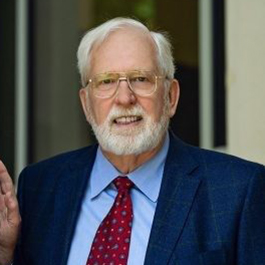
The documents in the collection were admitted into evidence on July 22, 2010, in the case of The Prosecutor v. Radovan Karadžić, subsequent to being referenced in the testimony of Robert Donia. Robert J. Donia served as an expert witness at the International Criminal Tribunal for the Former Yugoslavia (ICTY).
Predrag Dojčinović Collection

The records from The Prosecutor v. Ratko Mladić offer multifaceted historical, political, military, cultural and legal narratives, covering the time frame before, during and after the crime of genocide was committed against the Muslim population of Bosnia and Herzegovina between 1992 and 1995.
Ellen Elias-Bursać Collection
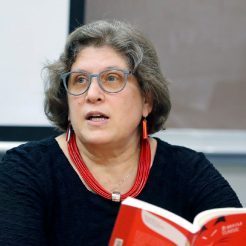
The Ellen Elias-Bursać Collection offers an overview of translation and interpreting challenges that arose during the trials at the ICTY. The archive includes administrative documents, trial transcripts, official memoranda, judgements and other documents related to dilemmas and disputes posed by translations and interpreting of Bosnian/Croatian/Serbian (BCS) terms.
The Dan Saxon Collection
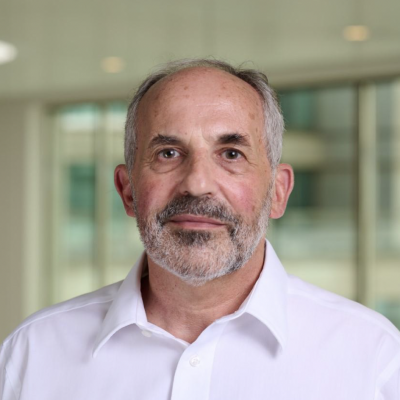
The Dan Saxon Collection is a compilation of records and materials from the United Nations International Criminal Tribunal for the Former Yugoslavia's (ICTY) trial of General Momčilo Perišić. The collection contains prosecution and defense exhibits, trial transcripts, legal briefs, documents, videos and photos describing the coordinated assistance in men and materiel provided by the Federal Republic of Yugoslavia to the armies of Republika Srpska and Republika Srpska Krajina from 1992 - 1995.
The András Riedlmayer Collection
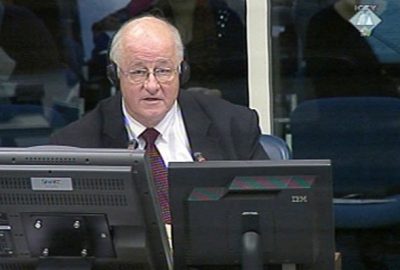
András Riedlmayer's Collection is an extensive archive documenting the systematic destruction by nationalist extremists of the cultural heritage of the former Yugoslavia during the series of international armed conflicts between 1991 and 1999. It includes meticulous records, photographs, and expert reports from Mr. Riedlmayer’s extensive fieldwork undertaken for the ICTY, detailing the destruction of libraries, archives, mosques, churches and other cultural sites in Bosnia and Herzegovina, Kosovo, and beyond. His expert testimonies at the ICTY and his legacy as a whole remain crucial resources in the international efforts to bring those responsible for these war crimes to justice, and to preserve and restore the region’s diverse cultural heritage.
Read more about the collection.
The William B. Tomljanovich Collection

The William B. Tomljanovich Collection encompasses documentary evidence regarding Croatian and Herceg-Bosna leadership which was gathered in the course of investigations and litigation during his tenure as Research Officer in the ICTY Office of the Prosecutor's Leadership Research Team from 1999 to 2011 and the ICTY Prosecutor’s Office Appeals Team from 2011 to 2017. Tomljanovich's collection includes materials used in various ICTY prosecutions, including the Prlić et al., Naletilić-Martinović, Kordić-Čerkez, Blaškić and Gotovina et al. cases, offering valuable insights into the history of Croatia and Bosnia and Herzegovina during the 1990’s, and the crimes committed during that period. The collection reflects his extensive work reviewing documents found in the HVO collection of the Croatian State Archive (where roughly 10,000 boxes of wartime materials are found) and transcripts from the office of the President of the Republic of Croatia as well as other sources.
The Christian Axboe Nielsen Collection
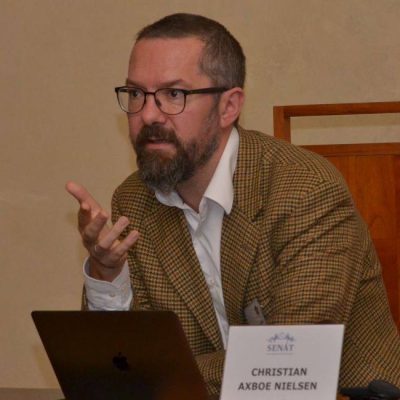
The Christian Axboe Nielsen Collection presents a comprehensive selection of materials submitted by historian and expert witness Christian Axboe Nielsen during key trials at the International Criminal Tribunal for the former Yugoslavia (ICTY). Focused on the role of the Bosnian Serb police and their links to Serbian state authorities, the collection offers critical insights into the organization of state violence during the 1990s conflicts in Bosnia and Herzegovina.
This collection reflects Nielsen’s extensive experience as an analyst and expert witness before international and domestic courts, and his scholarly contributions to the study of mass atrocities and political violence.
The Srebrenica Genocide Archives Collections
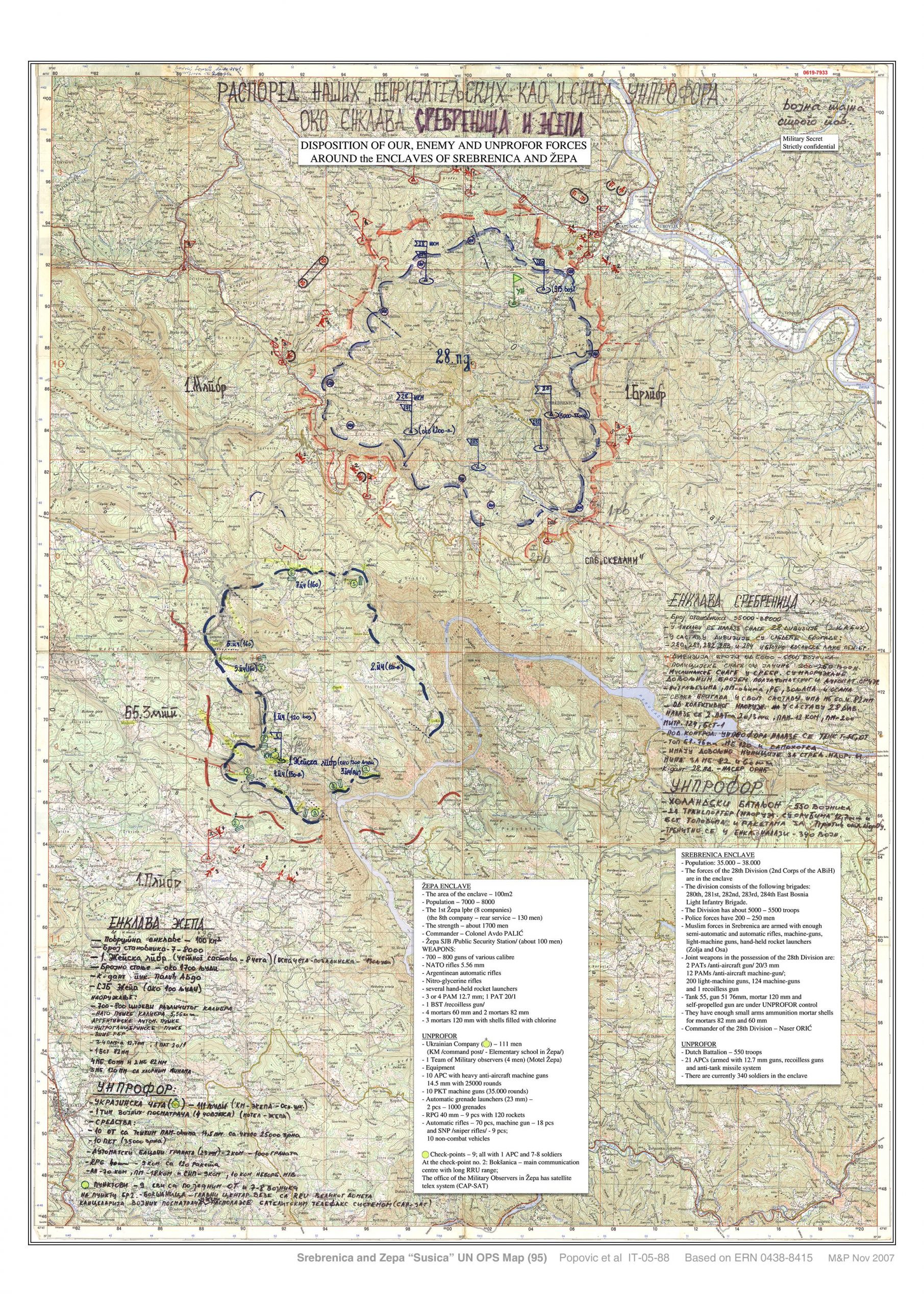
The Srebrenica Genocide Archives Collections project is a significant addition to the UConn ICTY Digital Archives, offering documentation related to the 1995 genocide in Srebrenica. This collection provides a focused lens on the investigation and prosecution of crimes committed during the conflict, drawing from primary sources that reflect both the experiences of survivors and the legal efforts to establish justice.
By preserving and presenting these materials, the collection supports ongoing research, education, and public engagement with the history and legacy of the Srebrenica genocide. It also contributes to a deeper understanding of international criminal law and the long-term pursuit of accountability and reconciliation.
Explore the Collection and learn more here
The Bijeljina City Archive Collections
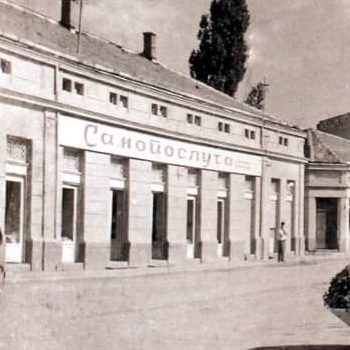
The Bijeljina City Archive Collections assemble important legal and historical records documenting the prosecution of key political and military leaders responsible for atrocities in Bijeljina, a city in northeastern Bosnia and the flashpoint of the Bosnian War. Centered on Bijeljina and its surrounding areas and originally preserved at the International Residual Mechanism for Criminal Tribunals (IRMCT) in The Hague, these materials offer a crucial window into the orchestration, execution, and consequences of systematic campaigns of ethnic cleansing, persecution, and violence.
The Bijeljina centered collections feature four principal sub-collections related to the trials of Radovan Karadžić, Slobodan Milošević, Momčilo Krajišnik, Biljana Plavšić, Stanisić and Simatović, as well as Vojislav Šešelj. Each sub-collection outlines, to some extent, the role the listed individuals played in the commission of mass atrocity crimes. The documentation, ranging from trial transcripts and witness testimonies to evidentiary materials and other legal documentation, captures the inner workings of state-sponsored violence and the international legal response that followed.
Alongside these legal records, the archive includes contributions from contemporary Bosnian cultural figures. Poet Selma Hujdurović, writer and activist Jusuf Trbić, and filmmaker Avdo Huseinović offer creative and personal perspectives that explore themes of memory, identity, and reconciliation. Together, these legal and artistic voices create a layered and powerful resource for understanding both the historical realities and the ongoing human legacy of the conflict in Bijeljina, and more broadly, across Bosnia.
Access The Bijeljina City Archives Collections
This collection was developed by Aida Gradaščević through an independent study in the Human Rights Program, with guidance from Catherine Masud and Predrag Dojčinović, and support from the Gladstein Family Human Rights Institute.
The Goražde Legacy-ICTY Pilot Collection
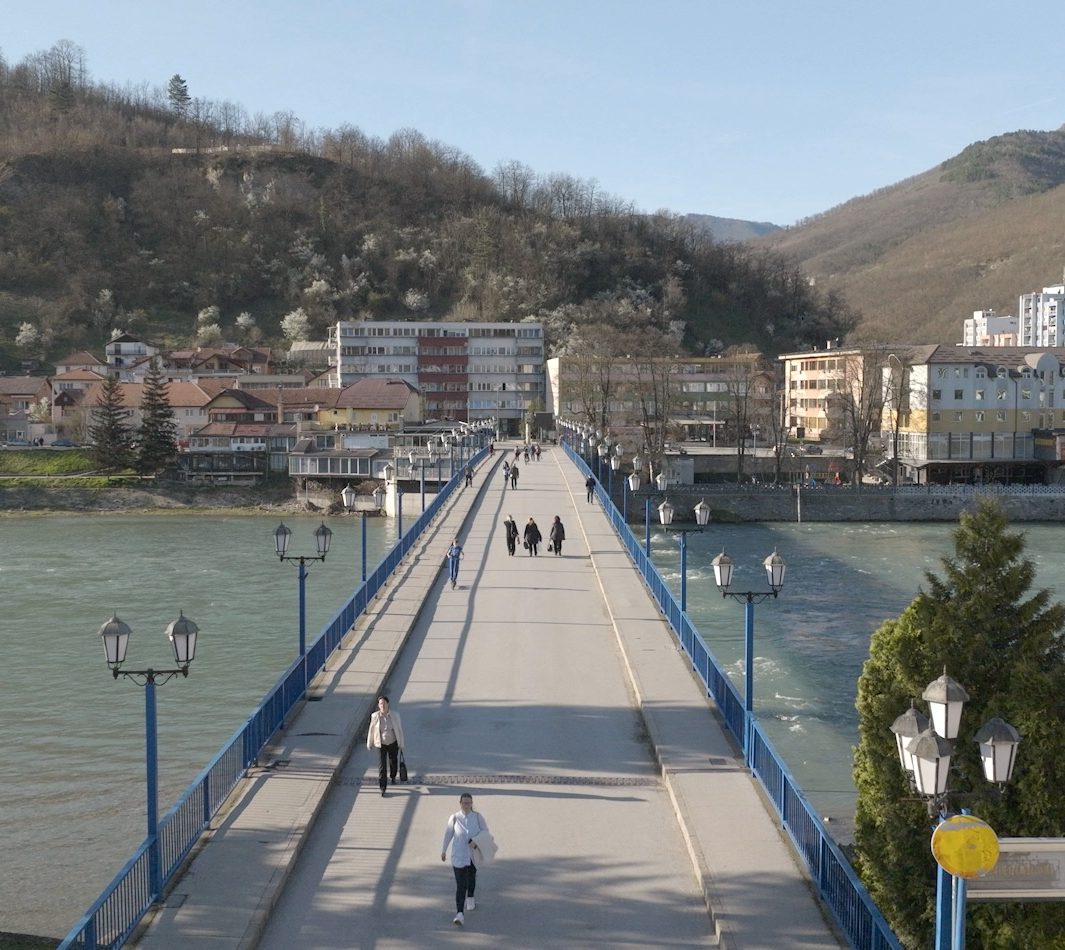
The Goražde - ICTY Pilot Collection is a joint project established between the Human Rights Dodd Impact initiative and the filmmakers of the documentary UNCONQUERED: Goražde - City of Heroes. This forthcoming digital archive will incorporate interviews, footage, and still images from the acclaimed feature film documenting firsthand testimony of the Bosnian Serb attacks and occupation of Goražde during the Bosnian War between 1992-1995.
The pilot collection will enrich the existing ICTY Digital Archives by providing additional primary source materials that convey experiences during the prolonged siege of Goražde, including war crimes, and post-conflict justice. The archive holds significant educational value for research purposes and will continue expanding through student multimedia projects and materials from the documentary’s production archive.
Learn more about the project and the archive here.
Access The Goražde Legacy Collection
Featured News
The Battle of the Drina — BBC Radio 4
A BBC Radio 4 documentary examining the siege of Goražde through firsthand testimony and international decision-making during the Bosnian War.
The Battle of the Drina was broadcast on BBC Radio 4 (Archive on 4) on December 13, 2025, and is now available on BBC Sounds. The documentary explores Goražde, the only UN-declared “Safe Area” in eastern Bosnia to survive the agression on Bosnia and Herzegovina, through first-hand testimonies from civilians, medical workers, and local defenders, alongside interviews with senior UN officials, diplomats, and military leaders.
The program presents important records also included in the pilot collection, emphasizing lived experiences, war crimes, and the complex context of post-conflict justice. It forms part of the wider UNCONQUERED multimedia and oral history initiative, which includes a forthcoming feature documentary and a curated multi-media archive hosted by the Gladstein Human Rights Institute and the Dodd Center at the University of Connecticut. The project also supports educational programming and mobile screenings in the Balkans, in collaboration with the Cultural Centre and Native Museum of Goražde.
Listen to The Battle of Drina outside the UK
Listen to The Battle of the Drina in the UK and EU

In case you experience technical difficulties accessing any collections, please contact us here.
INTRODUCTION TO GENOCIDE STUDIES
Instructor James Waller, Ph.D.
CONTEMPORARY ISSUES: GENOCIDE STUDIES
Instructor James Waller, Ph.D.
HUMAN RIGHTS & POST CONFLICT JUSTICE
Instructor Richard Wilson, Ph. D.
THEORY AND PRACTICE OF INTERNATIONAL CRIMINAL JUSTICE
Instructor Predrag Dojčinović
This course aims to provide each student with a broad understanding of the complex challenges, successes and failures of international criminal courts and tribunals. Students develop insights into the complex legal, political, philosophical, historical, military and cultural issues that may impact efforts to bring perpetrators of grave international crimes to justice.
HUMAN RIGHTS ARCHIVES I AND II
Instructor Catherine Masud
A two-part course sequence focused on human rights archives and digital storytelling. The courses combine hands-on archival work with creative storytelling techniques. The sequence aims to document, preserve, and share community memories and histories, creating an important resource for ongoing scholarship while strengthening university-community relationships.

Emma Dashnaw
Emma Dashnaw is a passionate advocate for digital history and archiving, with a focus on preserving the memory of genocides. As a Master of Arts student in Human Rights and a graduate with a Bachelor of Arts in History, Emma has dedicated the past three years to digitizing and preserving documents and artifacts. Her work with projects like Digital Windham and the ICTY Digital Archives demonstrates skills in using digital tools to bring community history to life and preserve important records for future generations.
Read Emma's reflecton on her experience with digital history here.

Gamze Ozker
Gamze is a graduate student in Human Rights, focusing on political violence and the evolving dynamics of modern conflict. Her research interests include the decision-making processes of non-state armed groups, their perceived legitimacy, and how civilians influence the conduct and outcomes of conflicts. Through her work with the ICTY Digital Archives, she aims to highlight how historical and contemporary narratives reveal the complexities of warfare, from governance to accountability, while emphasizing the human suffering it generates.
Read Gamze's reflection on curating memories in the digital age here.